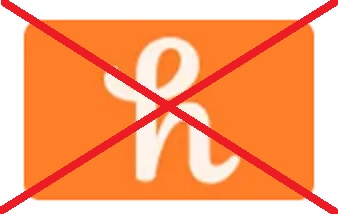I've been following a story that's started getting a bit viral over the last week or so about a browser plugin called Honey.
Honey is marketed as a way for it's users to find the best possible discount coupon codes when shopping online.

Image made by me, logo stolen from Honey for fair use purposes
I won't go into fine technical detail about it, there are a number of YouTube videos out there that explain it far, far better than I ever could. Probably the best of them is MegaLag, who broke the story. I've linked to his YouTube video below;

What Honey Does
A brief synopsis of the problem is this;
- Honey is owned by PayPal.
- It replaces all affiliate cookies with it's own, thus using the "last touch" principle to take any available commissions from affiliates and creatives for ALL online purchases by anyone who has it installed.
*Even if it doesn't find a coupon code, it takes the revenue of any affiliate links involved. - It costs businesses money by spreading their coupon codes far wider than originally intended and taking any affiliate commissions in their marketing budgets.
- It costs consumers money because it doesn't even find the best couppon codes as promised; businesses can try to defend themselves by paying to sign up and restrict the codes Honey shows.
- It pushes people to pay by PayPal, thus costing businesses money in fees compared to other payment methods.
- For an extended period of time, Honey hid the fact that it replaces cookies and does all the things it does.
- It's unclear how much additional tracking of user activity it does, but it is suspected to be highly invasive.

My Opinion On What We Know So Far
I believe that a class action lawsuit was filed on 29th December on behalf of influencers and creators who gave affiliate links to their fans and subscribers, being clear that the commission from those links was how they made their living, but where they earned nothing due to Honey taking the revenue.
In my opinion, Honey gave little of value to anyone, it just inserted itself as a middleman (almost at a malware level of toxicity) and took all the money that should have gone to others. Creatives, businesses and customers alike all lost out. That it was PayPal who were the only ones to benefit is not a great surprise.
What this illustrates to me is how far Web2 businesses have sunk in their desperate quest for any revenue they can lay their hands on. Honey operates with a total lack of transparency, but seems to have taken millions of dollars that should have gone to creatives, particularly smaller ones., and often didn't find the best coupons (or in many cases, ANY coupons) for the users who installed it.

Web 3's Role
Cases like this are where blockchain and Web3 could really score.
Blockchain transactions have a far higher level of transparency, it's just a case of coding the referrals through a blockchain. Ideally instead of cookies, although I'm not enough of a technical expert to know how or if that's possible. But as a backup to cookies, it would at least allow revenues to be reconciled to see if any has gone astray.
But there is another, far more important way Web3 avoids this whole problem, and by using Hive you're doing it already. In Hive, creators are directly paid through upvotes, by being able to build stacks of HBD that pay interest, and by being able to curate content to earn curation rewards. You like something someone has written, you upvote it, and they make some money. Simple.
In the meantime if you've got Honey installed on your computer or phone, it's probably worth considering if it is something you really want, from both a data securiety and ethical perspective.

Posted using The BBH Project